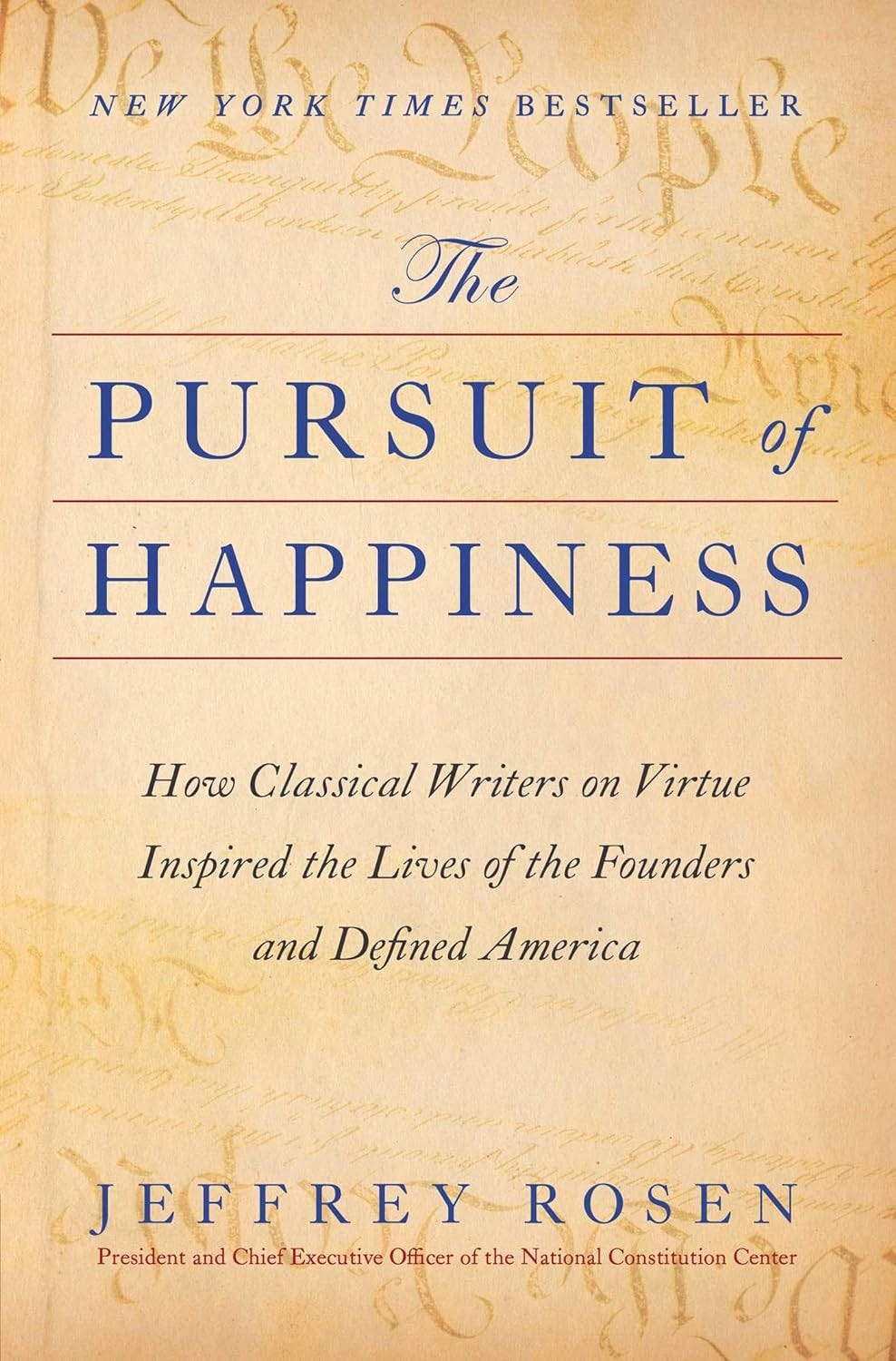Diary of the Late Republic, #8
I’ve been reading Jeffrey Rosen’s The Pursuit of Happiness: How Classical Writers on Virtue Inspired the Lives of the Founders and Defined America. Not exactly for pleasure—it’s background reading for a future course I’m hoping to teach with two colleagues titled “Word & Image: Ancient & Modern” in which we compare the Roman and American empires. It’s one of those books that seems better in theory than practice, a somewhat unwieldy melding of anecdote, gloss on ancient text, and civics lesson. But it’s informative and quietly passionate, and I appreciate it as such.
Anyway, my eye was caught by Rosen’s chapter on John Adams, whose struggle was to maintain a sense of humility (though his vanity was tempered by a saving grace of honesty, especially about himself). In a letter to Thomas Jefferson, Adams referenced Aristotle’s contention that successful societies must balance government by the one, the few, and the many. Rosen goes on to explain: “Monarchy, based on the rule of the one, could degenerate into tyranny. Aristocracy, based on the rule of law, could degenerate into oligarchy. And what Aristotle called ‘polity,’ or a mixed regime based on the rule of the many, could degenerate into democracy, or rule by the mob.”
It's not hard to see these three forces at work in contemporary American society—each of them showing troubling signs of serious rot. Our rule of one is the presidency, theoretically checked by the paper and scissors of Congress and the courts. But our executive branch has grown increasingly powerful over time, first apparent in foreign policy and now increasingly so in domestic policy—the so-called executive action is increasingly becoming the instrument of choice— because legislators are no longer really interested in legislating, whether because of a desire to showboat for the media, fear of getting primaried, or getting bogged down in ceaseless fundraising. (It’s truly remarkable how few laws are getting passed these days.)
Our rule of the few is our aristocracy, which straddles the plutocratic class and professional elite. They of course don’t always see eye to eye—it’s in the nature of aristocracies to compete and factionalize, whether by type or issue. What the Wall Street banker and university administrator have in common is a desire to husband financial resources and to regard the law as an instrument they need to bend to their own purposes. (They are often successful these days in using their power through the courts to stymie executive power.) Neither, in the end, has the interests of ordinary rank-and-file Americans at heart. That’s why they’re both regarded with suspicion and contempt, though progressive elites may get more of the latter because they’re perceived as hypocritical in their insistence on their own benevolence, though capitalists have a tendency to insist that theirs is not simply the best but the only possible economic world.
And then there’s the many. What Aristotle and Adams pejoratively called “democracy” we today would call “populism.” Populism has been a powerful force that has surfaced periodically in American history, sometimes on the left, other times on the right. At its best, it forces rulers and elites to literally pay attention in the form of concessions that buy social peace. But as we’ve seen in recent years, populism can get ugly in its mindless refusal to defer to any kind of authority except its own. There’s some of this on the left, especially in the realm of gender, but most of it—the most powerful and dangerous kind—is on the right.
I think all three of these realms are on the verge of collapse in terms of functioning as a check on the other two. The rule of one tends to be in the best position to thrive in times of social upheaval, though that can take a while (see: France, 1789, or Russia, 1917). You can never eliminate any of the three. But keeping them in equipoise is a neat trick. If there’s any hope of doing so, I believe Adams was right: you have to acknowledge both their reality and utility. How many of us are really willing to do that?



